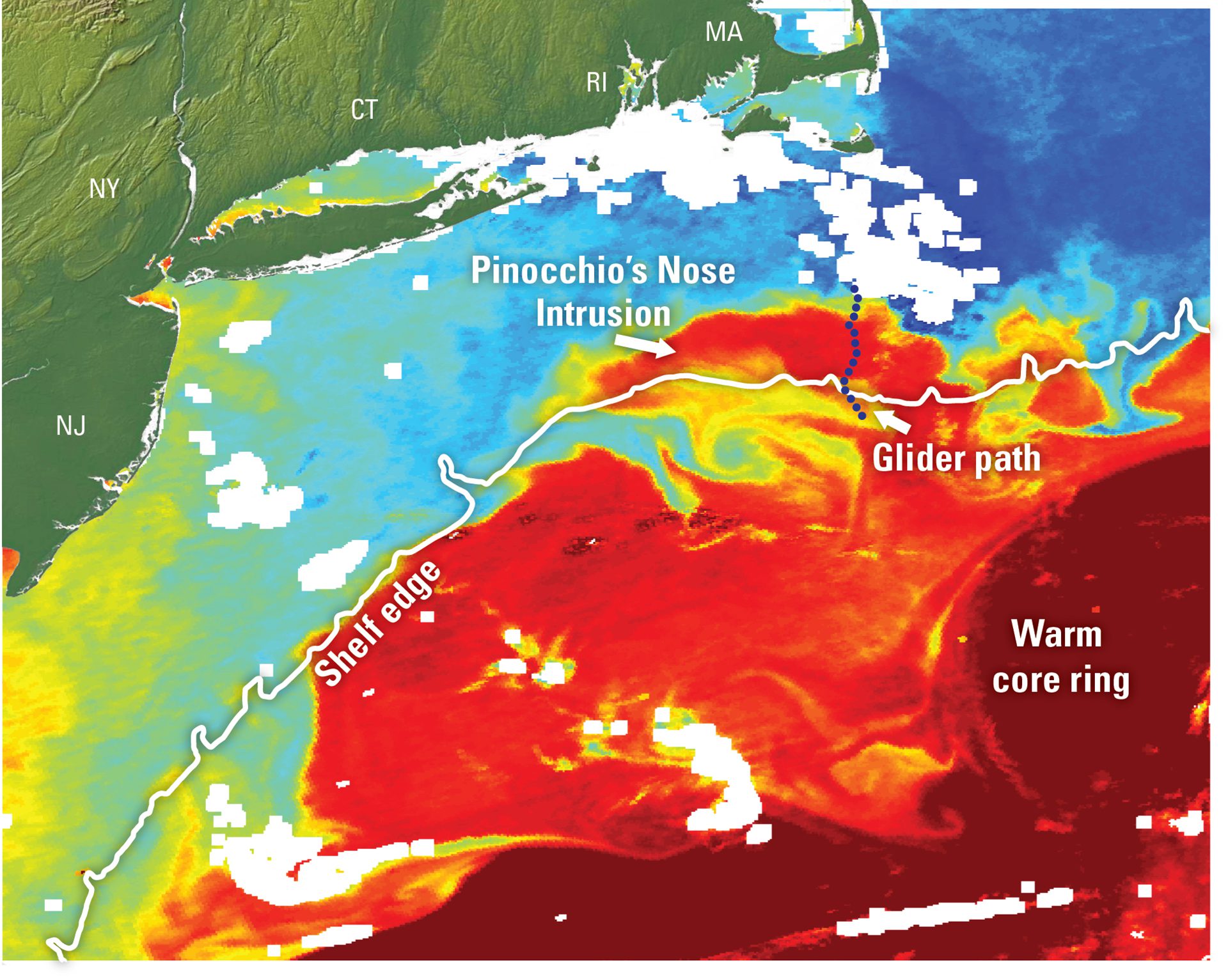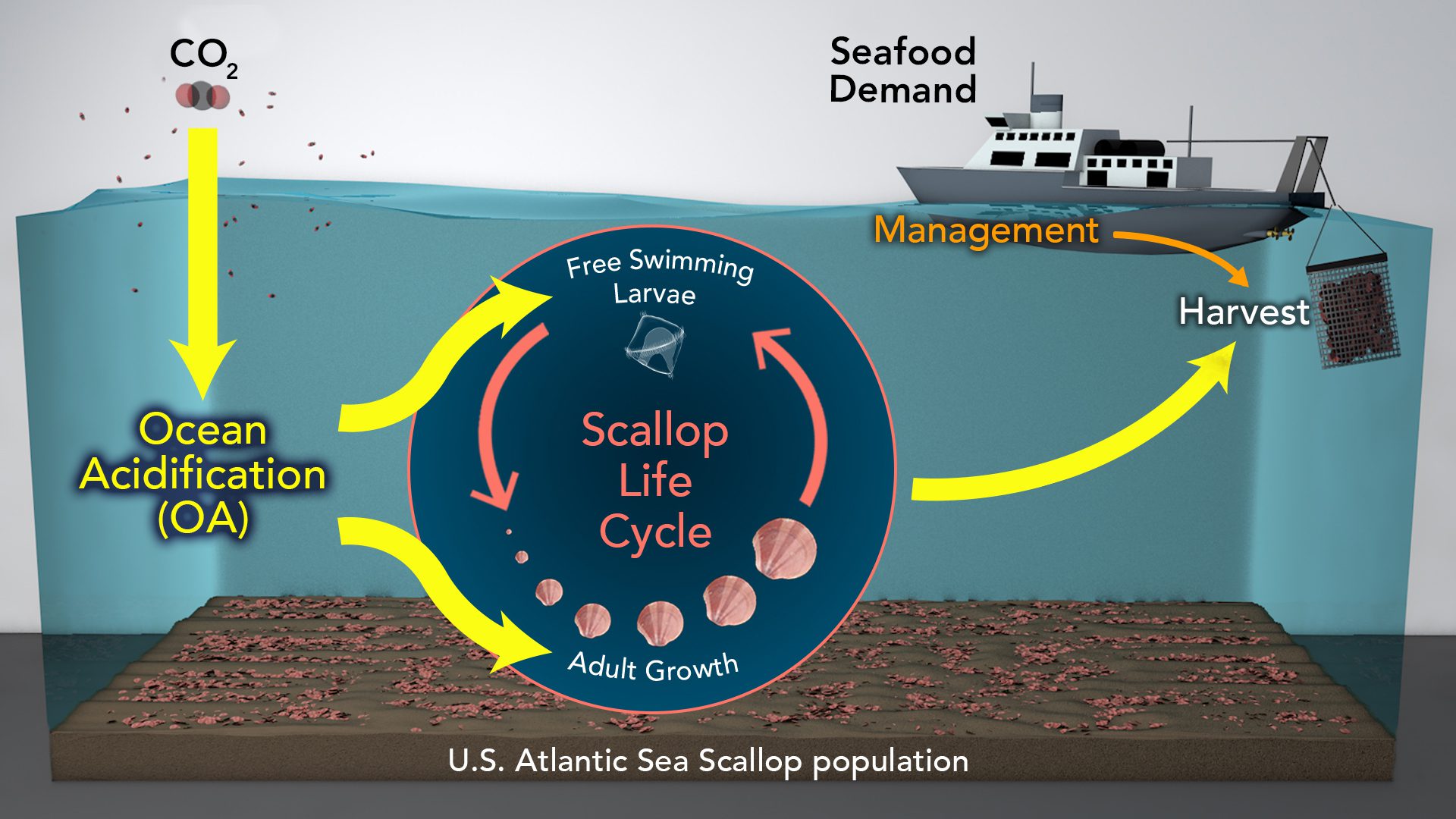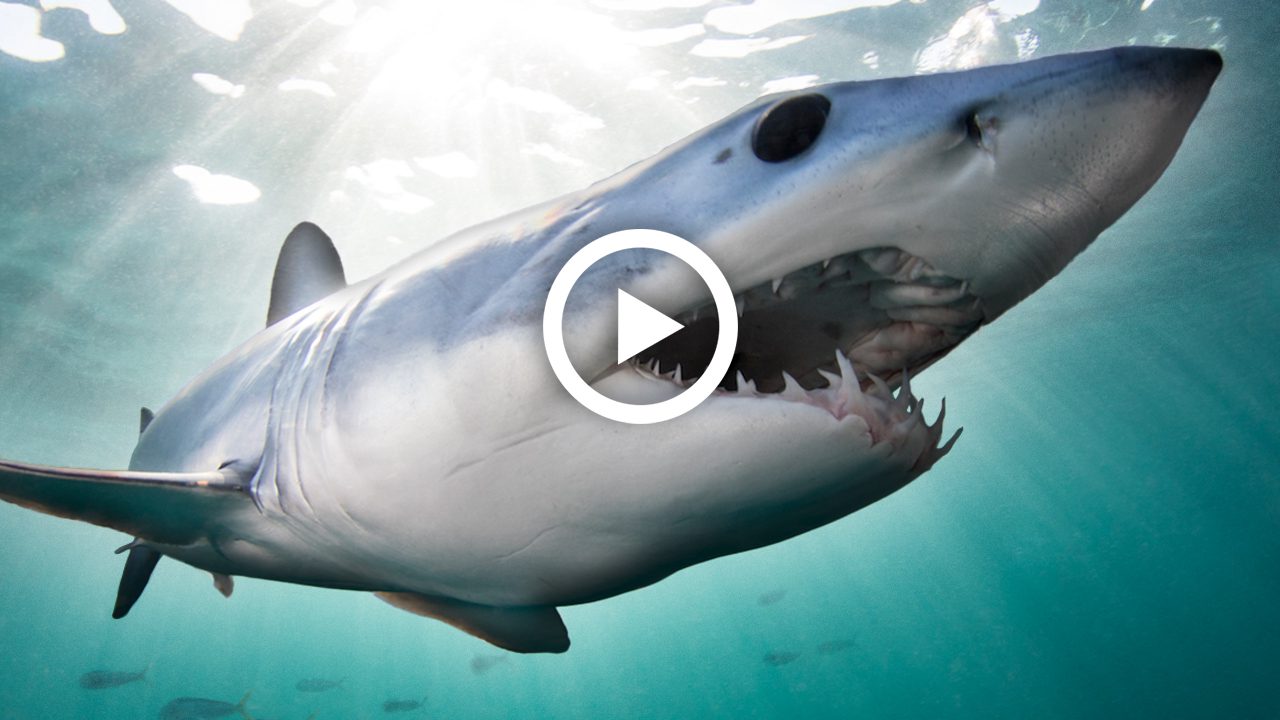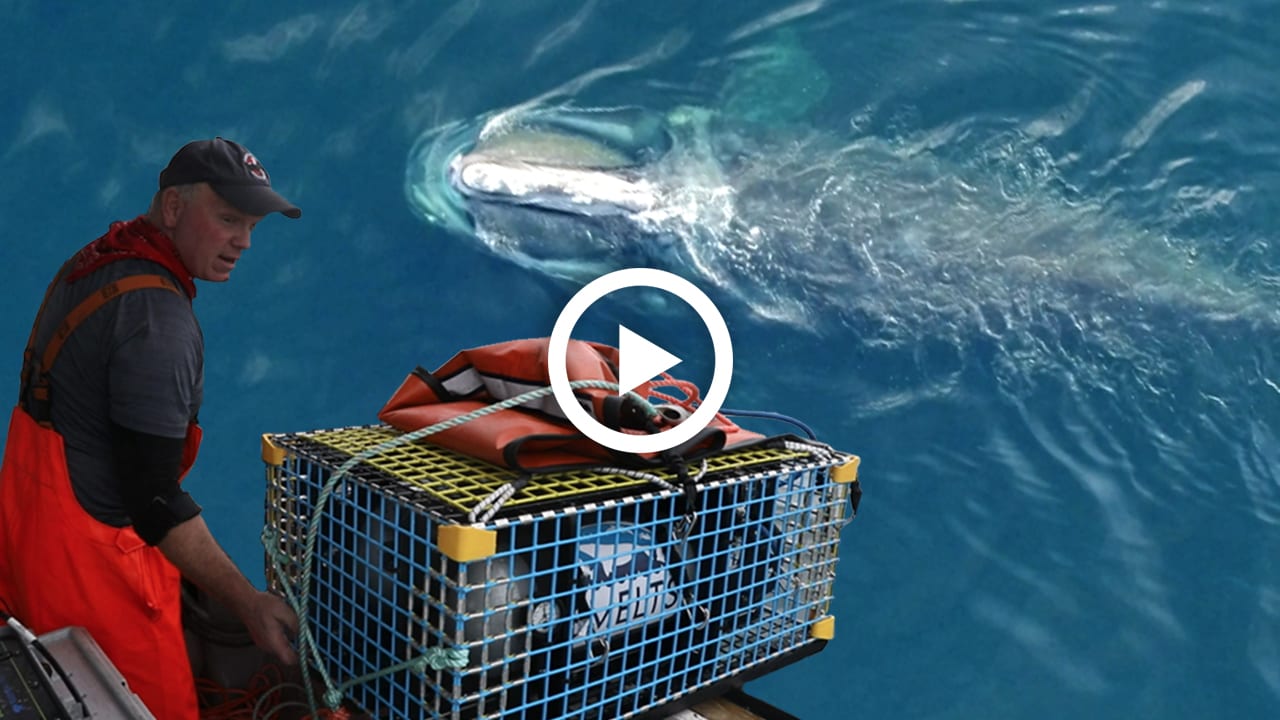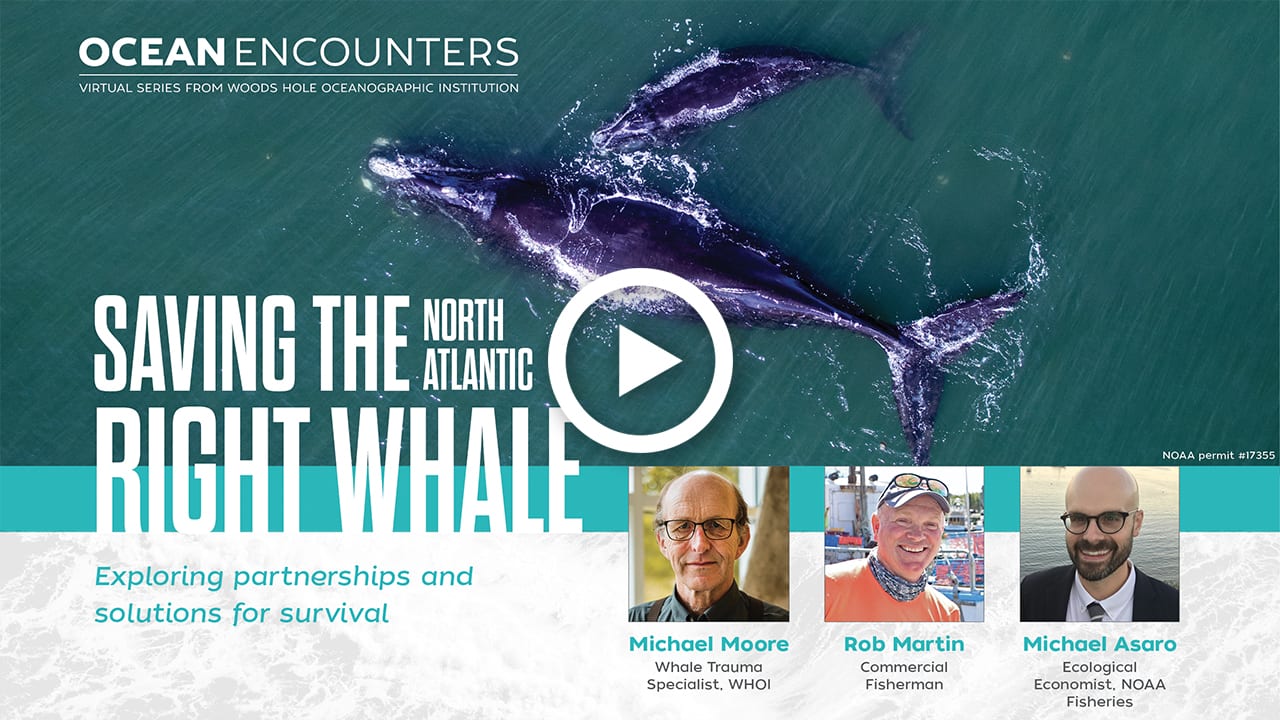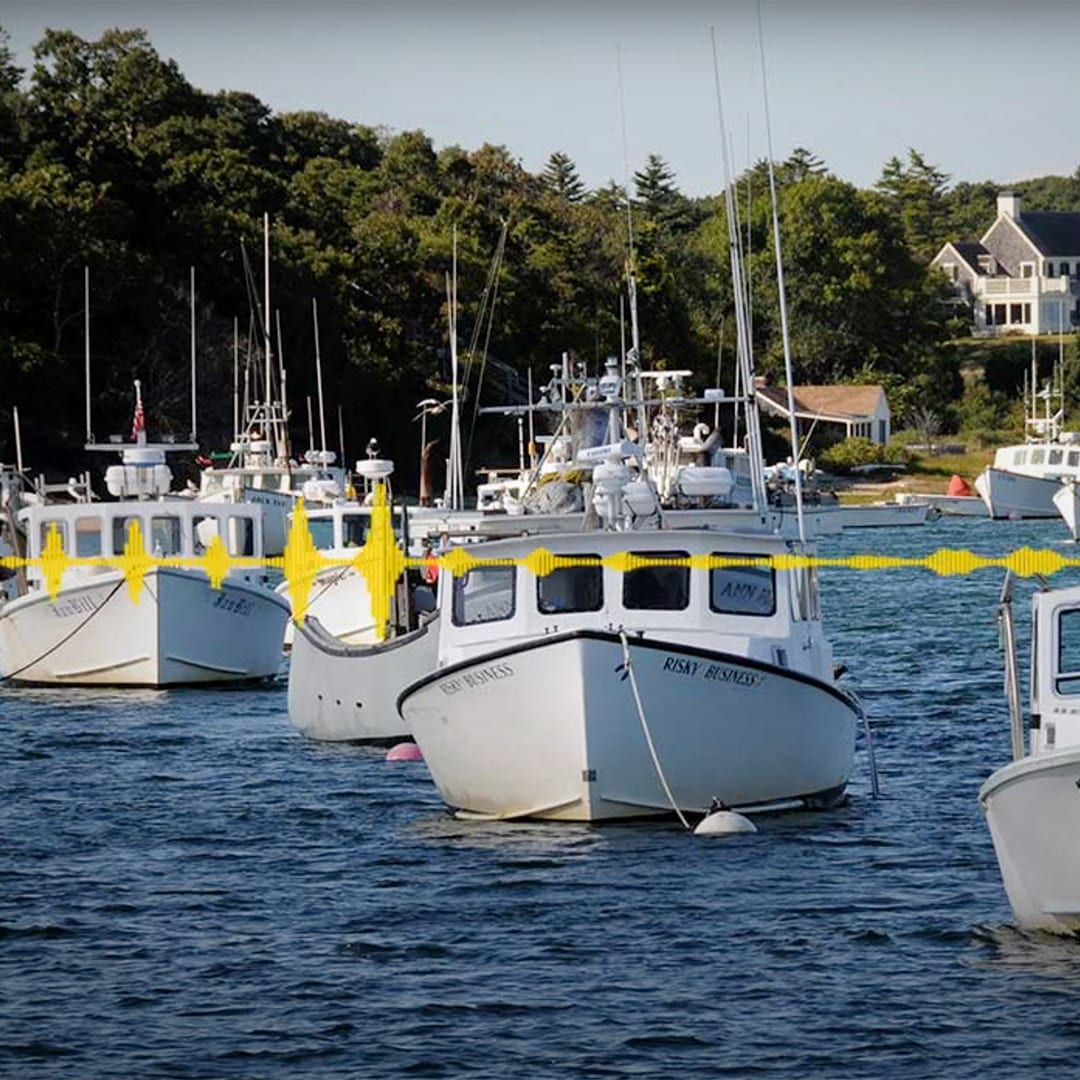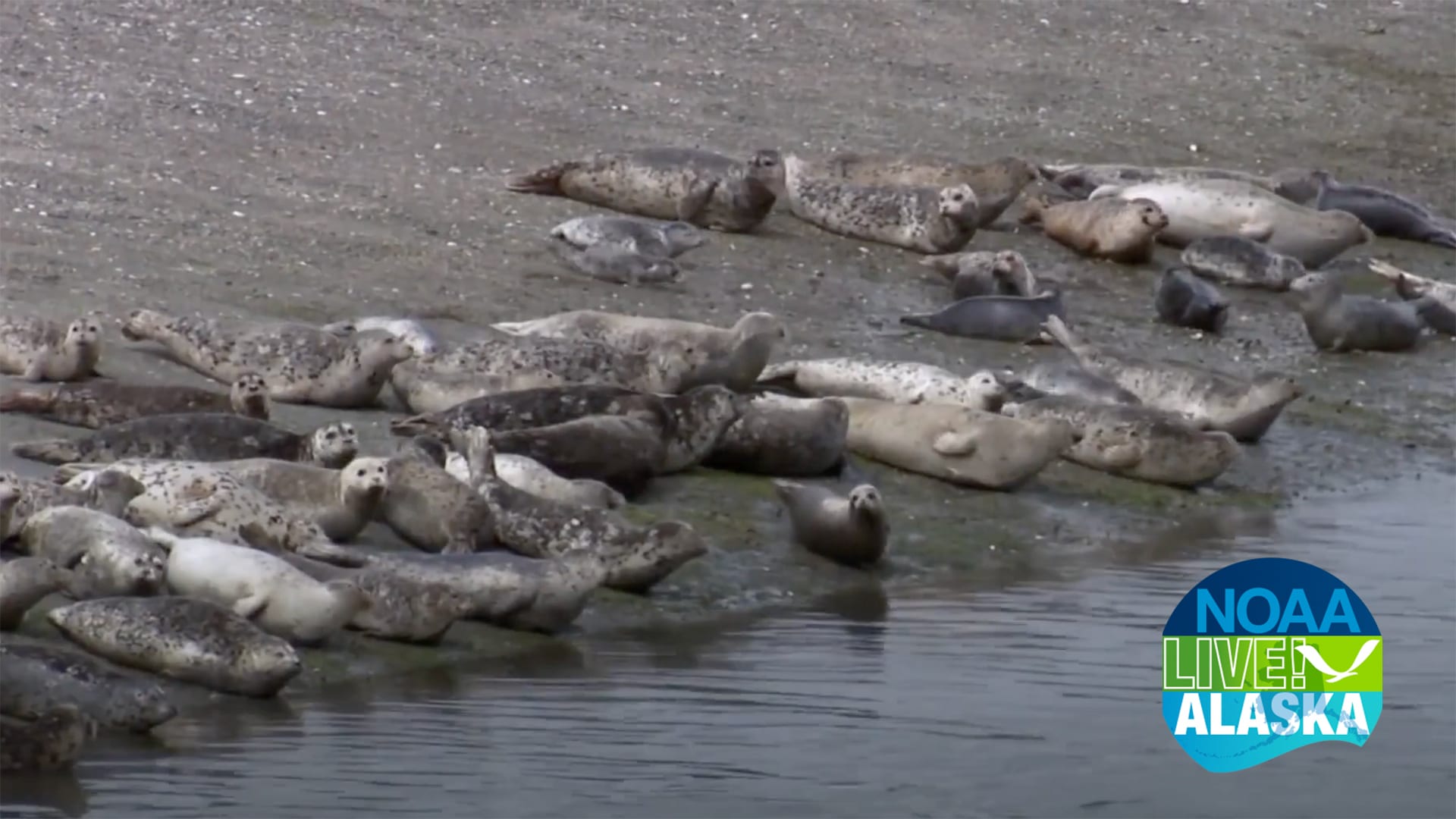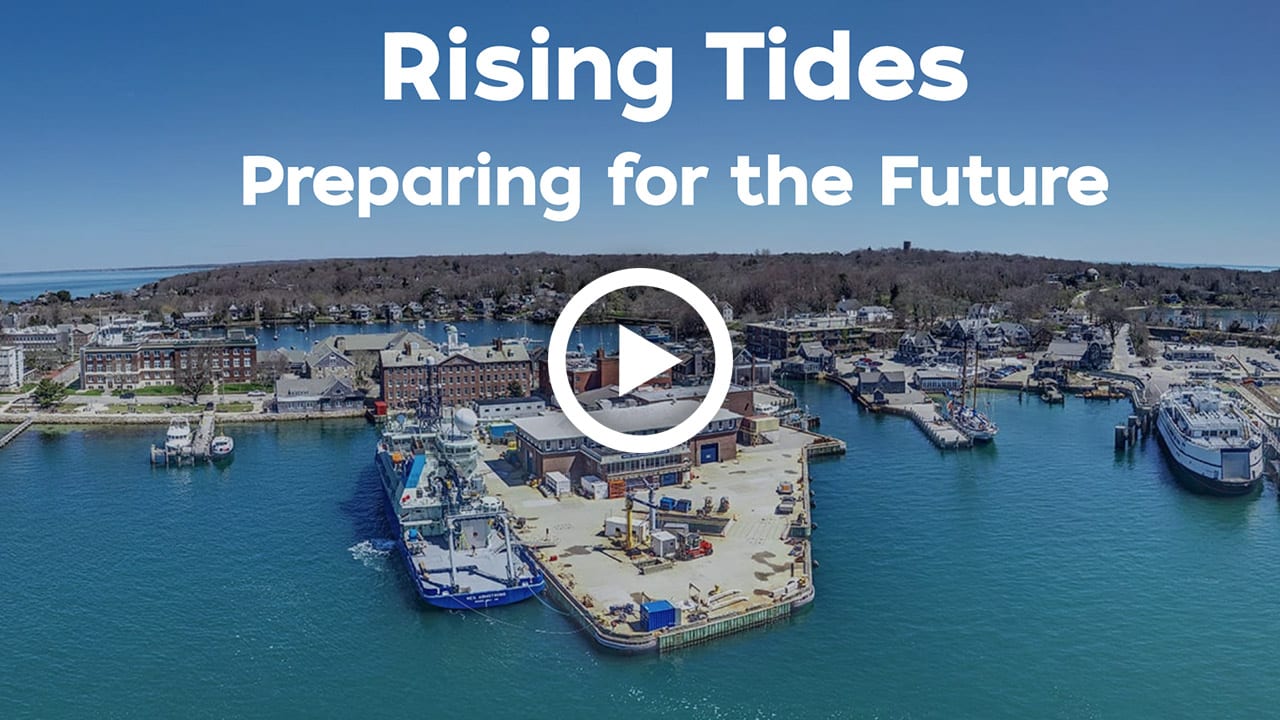Multimedia Items
Satellite image showing Pinocchio’s Nose warm water intrusion along the Shelf
In 2014, satellite imagery revealed an elongated body of warm Gulf Stream water pushing onto the edge of New England’s continental shelf toward the southwest. Scientists have seen similiar phenomena…
Read MoreScallop Life Cycle being affected by ocean acidification
Atlantic sea scallops are a $500 million annual industry, but WHOI scientists believe they may be in danger. A new model developed by WHOI researcher Jennie Rheuban suggests that as…
Read MoreTop predator loss of habitat?
A study published in Science Advances by researchers at WHOI, San Diego State University, and NOAA Fisheries Service sounds an alarm bell for fisheries management in the Northwest Atlantic and Gulf of Mexico. Led by WHOI marine ecologist Camrin Braun, the researchers predict that economically and ecologically important marine predators (sharks, tuna, and billfish) will lose or shift away from up to 70% of their current habitat due to climate-driven warming of the ocean. Learn more at go.whoi.edu/fish-habitat-loss
Read MoreUnderwater robot tracks ocean creatures
An innovative underwater robot known as Mesobot is providing researchers with deeper insight into the vast mid-ocean region known as the “twilight zone.” Capable of tracking and recording high-resolution images of slow-moving and fragile zooplankton, gelatinous animals, and particles, Mesobot greatly expands scientists’ ability to observe creatures in their mesopelagic habitat with minimal disturbance. This advance in engineering will enable a greater understanding of the role these creatures play in transporting carbon dioxide from the atmosphere to the deep sea, as well as how commercial exploitation of twilight zone fisheries might affect the marine ecosystem.
Read MoreCollaborating to Save the Right Whale
Fishermen, engineers, and scientists are working together to test and develop fishing gear that has no buoy lines in the water column to save the critically endangered North Atlantic Right Whale. There are less than 400 North Atlantic Right Whales left in the world and many right whale deaths can be attributed to entanglement.
Read MoreOcean Encounters: Saving the North Atlantic Right Whale
The North Atlantic right whale is one of the most endangered whales in the world, with an estimated 366 left on the planet. These animals are often found on the Continental Shelf of the East Coast of North America, making them vulnerable to human activities including fishing gear entanglements. In recent years, more whales have died than have been born. Join us as we examine the top threats facing North Atlantic right whales, and discuss the crucial efforts by the scientific community, fishing industry, and policymakers to develop the most effective and viable solutions to ensure the long-term survival of this critically endangered species.
Read MoreOcean data gives Northeast fishermen edge against a warming ocean
Fisheries successfully brace against warm water wave from Gulf Stream, thanking access to ocean data
Read MoreDrones, Scat, and the Joys of Marine Mammal Fieldwork in Alaska on NOAA-Live!
How do we study marine mammals and what do we find out? Take a journey through the types of surveys and tools that are used to study Steller sea lions and northern fur seals in Alaska, and the challenges faced by scientists who study them!
Read MoreRising Tides: preparing for the future
Like many coastal communities, Woods Hole, located on Cape Cod, faces an uncertain future. Rising sea level and the potential for increased frequency and intensity of storms present significant long-term threats. Woods Hole is home to world-leading marine science institutions performing critical research from shore-based facilities that enable access to the sea and yet, ironically, are vulnerable to the same climate change impacts that are the subject of study.
Read MoreA win for lobstermen and right whales
A study from Woods Hole Oceanographic Institution found a win for New England’s historic lobster fishery and for endangered right whales. Researchers Hannah Myers and Michael Moore show that even with less gear and a shorter season, fishers in Canada, Maine and Massachusetts caught about the same number of lobsters with much less effort. A change in regulations could protect whales and make the lobster fishery more profitable in the long term.
Read MoreOcean Encounters: Sharks!
Sharks are one of the most iconic, and feared, groups of animals in our wild ocean. Like other apex predators, they play a crucial role in the ecosystem they call home. Join us to learn about sharks and their behavior and role in a healthy ocean with shark biologist Greg Skomal, Massachusetts Division of Marine Fisheries, and WHOI ocean ecologist Simon Thorrold.
Read More
